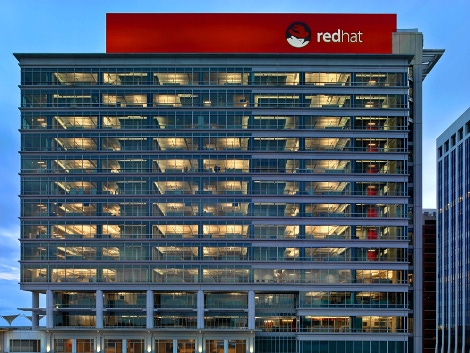August 3, 2017

Red Hat’s announcement this week that it has “acquired the assets and technology” of Permabit Technology should eventually have a mixed bag of effects on data center operators of different types.
Permabit, a Cambridge, Massachusetts-based company, provides software for data deduplication, compression, and thin provisioning. Although the wording of Red Hat’s announcement makes it unclear whether it’s bought the company outright or just some portion of it, we know that 16 Permabit employees will be making a move to Red Hat. Also not disclosed was how much money changed hands in this transaction.
It’s easy to see why Red Hat would be interested in Permabit’s technology. Red Hat is a leader in the hybrid computing field, in which companies maintain on-premises data centers running private clouds while also incorporating public cloud services. This means that a majority of its customers are in charge of their own storage, making Permabit’s proprietary deduplication and compression technology’s ability to reduce storage capacity requirements a big plus. Big Red also gains data reduction software released last year, designed specifically for use with Linux.
Red Hat also has had an extensive close look at the technology it’s purchased. Last year, when developing its Linux products, Permabit announced it was collaborating with Red Hat to test and certify its VDO data reduction for Linux with Red Hat Ceph Storage and Red Hat Gluster Storage software.
Mixed in with some impressive results from its Red Hat collaboration, Perabit claimed use of the technology can help reduce data center floor space:
“Organizations struggling to keep up with demand for cloud storage are suddenly confronting the need for huge data center expansion which can run up to $3000/square foot.
“Combining Permabit VDO with open source private cloud storage maximizes data center density, reducing the need for expansion while also lowering operational costs of power and cooling. Permabit Labs testing of VDO with unstructured data repositories on Red Hat Storage saw data reduction rate of 2:1. Permabit Labs Testing in Virtual Disk Image environments saw VDO compression and deduplication deliver up to 6:1 data reduction rates with Red Hat Storage.”
That’s good news for colocation tenants and generally for anyone looking to find money in the budget to buy additional storage. While the implications for colo providers are not as good, the impact should be minimal.
Although Red Hat’s newly acquired technology is currently proprietary, the company says it plans to release it under an open source license. “This will enable customers to use a single, supported and fully-open platform to drive storage efficiency,” it said, “without having to rely on heterogeneous tools or customized and poorly-supported operating systems.”
After being open sourced, if the tech works as advertised, it’ll eventually end up being incorporated into the products of other enterprise Linux distributions, such as SUSE and Ubuntu. It’ll be in Red Hat products first — Red Hat won’t have to release the source code until it begins to distribute it — but it’ll eventually wind its way into other distributions. For the same reason, we’ll probably also see major public cloud providers working to integrate it into their platforms.
The technology might benefit Red Hat and Linux in another way. In an article for The Register, Simon Sharwood wondered if deduplication and other tech the company is gaining might be used to bring ZFS capabilities to Linux.
ZFS, short for Zettabyte File System, is a file system developed primarily for servers and considered off-limits for Linux due to a license compatibility issue with the GPL, Linux’s license. In addition to being able to manage huge amounts of data, as its name suggests, it offers improved preservation of data integrity, allows the pooling of multiple drives into a single pool of storage, and more.
Sharwood might have a point. If so, this would make ZFS somewhat irrelevant as far as Linux is concerned. It might even cause Oracle to change the license to something that’s GPL compatible.
About the Author
You May Also Like







